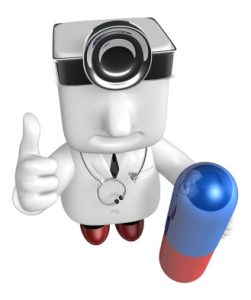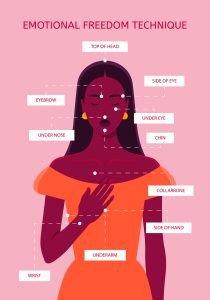In a world where medicine and morality intersect, Health Care Ethics serve as a guiding compass for professionals navigating the complex landscape of modern healthcare. Essential to the practice of nursing, these ethical principles ensure that patient care remains not only effective but also morally accountable. As the field of healthcare continues to evolve, so too does the importance of understanding and integrating these ethical standards into every aspect of nursing practice. From ensuring patient autonomy to upholding the principles of nonmaleficence and justice in nursing, the role of ethics in healthcare is more critical than ever, driving the need for a thorough examination of its impact on contemporary nursing practices.
This article delves into various facets of Health Care Ethics, including its definition, the core ethical principles in nursing such as nonmaleficence, patient autonomy, and justice, and the pivotal role these principles play in nursing education and decision-making processes. It addresses the challenges nurses face in applying ethical considerations in their practice, the influence of technology on nursing ethics, and the importance of ethical advocacy. Through exploring ethical issues in nursing and how professionals navigate ethical dilemmas, the article paints a comprehensive picture of the indispensable nature of healthcare ethics. By examining the integration of the Code of Ethics for Nurses into daily practice, it offers insights into how ethical frameworks guide nurses in providing compassionate, equitable, and effective patient care.
In short, health care ethics is about making the right choices in medical settings. It helps doctors, nurses, and other health workers decide what to do when they face tough situations. By thinking about values like fairness and respect, they can make sure they treat patients well. This field covers many areas, including public health, research, and patient care. With limited resources and many different needs, health care ethics helps find the best solutions for everyone involved.
Key Takeaways
-
- Health care ethics involves making choices that affect patient well-being.
- It covers areas like public health, research, and clinical care.
- Ethical guidelines help ensure fair and respectful treatment of patients.
- Healthcare professionals face tough decisions daily, requiring clear ethical guidelines.
- Advances in technology and diverse patient needs make ethical considerations more important than ever.
Foundations of Health Care Ethics
Core Principles of Bioethics
Health care ethics is built on several core principles that guide the actions of health care professionals. These principles include autonomy, beneficence, non-maleficence, and justice. Autonomy respects the patient’s right to make their own decisions. Beneficence involves acting in the best interest of the patient. Non-maleficence means to do no harm, and justice ensures fairness in medical decisions.
Understanding Healthcare Ethics
Definition of Ethics in Healthcare
Ethics in nursing encompasses fundamental principles that guide nurses’ practice, ensuring they deliver care that is compassionate, respectful, and centered on the patient’s needs and rights. The American Nurses Association (ANA) Code of Ethics for Nurses with Interpretive Statements, developed in the 1950s, serves as a moral compass to promote high levels of care and ethical standards for those entering the nursing profession . It advocates for patient safety, compassion, and a commitment to the primary interests of patients, emphasizing the importance of ethical principles such as autonomy, beneficence, justice, and non-maleficence.
Historical Context and Evolution
The field of health care ethics has evolved significantly over time. Initially, it was heavily influenced by philosophical and religious teachings. Over the years, it has incorporated insights from various disciplines, including law, sociology, and medicine. This evolution reflects the changing societal values and the increasing complexity of medical care.
Historical Perspective: The Hippocratic Oath
The Hippocratic Oath, attributed to Hippocrates, a Greek physician, is one of the oldest and most widely known codes of ethics . Originally, it did not include the phrase “first do no harm,” which is a common misconception; instead, it included commitments to abstain from deleterious and mischievous acts. Over the centuries, the Oath has evolved significantly. In the 1500s, it was rediscovered and adapted to align with Christian practices, and by the 1700s, it was translated into English and began to be incorporated into medical school convocations.
Modern versions of the Hippocratic Oath, such as the Declaration of Geneva and the oath written by Louis Lasagna, have been adapted to reflect contemporary ethical standards, including not using medical knowledge to violate human rights and practicing medicine without discrimination. These modern adaptations underscore the enduring relevance of the Oath’s core principles, which continue to guide medical professionals in ethical decision-making and patient-centered care.
Nurses and other healthcare professionals rely on these ethical frameworks to navigate complex and often sensitive situations, ensuring that patient care prioritizes dignity, respect, and compassion. This fosters trust in the nurse-patient relationship and contributes to the integrity of healthcare organizations. As healthcare continues to evolve, the principles outlined in the Hippocratic Oath and its modern versions remain crucial in guiding the ethical conduct of medical professionals.
Interdisciplinary Nature of Health Ethics
Health care ethics is inherently interdisciplinary, drawing from multiple fields to address complex ethical issues. It involves collaboration between health care providers, ethicists, legal experts, and policymakers. This interdisciplinary approach ensures that diverse perspectives are considered, leading to more comprehensive and balanced ethical decisions.
Core Ethical Principles in Nursing
Autonomy
In nursing, autonomy emphasizes the patient’s right to make decisions about their own health care based on their values and preferences. It is defined as the ability to act on one’s own knowledge and judgment, focusing on providing patients with the information they need to make informed decisions. Nurses support autonomy by ensuring that patients understand their treatment options and by respecting their choices, which can lead to improved patient satisfaction and outcomes.
Beneficence
Beneficence involves actions that promote the well-being of others. In the context of nursing, this principle dictates that nurses should act in the best interest of their patients, ensuring that all actions contribute positively to their health. This includes performing interventions that enhance patient comfort and well-being while avoiding harm. The principle of beneficence is not only about taking positive actions but also about preventing harm by advocating for the patient’s health and safety.
Nonmaleficence
Nonmaleficence, a fundamental principle in healthcare, requires nurses to refrain from causing harm to patients. This principle extends beyond the traditional maxim of “do no harm” to include preventing harm and ensuring that the potential benefits of any intervention outweigh the risks. Nurses must consider the possible harm that could result from their actions or inactions and choose the path that minimizes risk to the patient’s health and well-being.
Justice
Justice in nursing ethics refers to the fair and equitable treatment of all patients. It demands that nurses provide equal care to everyone, regardless of their background, economic status, or personal characteristics. This principle challenges nurses to be advocates for fair treatment and to ensure that all patients have access to the same quality of care. In practice, this means making impartial decisions and addressing biases that could influence patient care.
These principles form the cornerstone of ethical practice in nursing, guiding nurses in their daily interactions and decision-making processes. By adhering to these ethical standards, nurses uphold the dignity and rights of their patients, ensuring that their professional actions are both morally and legally sound.
Role of Ethics in Nursing Education
Ethical Training in Nursing Programs
In the realm of nursing education, the establishment of robust ethical training programs is essential. The Nursing Ethics Program (NursE), initiated in 2020, exemplifies such an initiative. Led by experts in both nursing and bioethics, this program aims to create a network of ethically knowledgeable nurses equipped to handle complex ethical situations in healthcare. The program’s multifaceted approach includes developing leaders in nursing ethics through a two-year, full-time training that encompasses scholarship and clinical ethics practice.
Furthermore, the Nursing Ethics Faculty Fellowship, exclusive to nurses holding advanced degrees, focuses on fostering leadership in addressing ethical issues in nursing practice. This longitudinal, project-based program emphasizes the importance of ethical decision-making and leadership in nursing ethics.
Students enrolled in accredited nursing programs also have the opportunity to engage in internships that delve into ethical research and practice. These internships, lasting 8 to 10 weeks, are crucial for students to gain firsthand experience in handling ethical dilemmas and contributing to research in nursing ethics.
Ethical Decision-Making in Clinical Practice
Balancing Autonomy and Beneficence
In clinical practice, healthcare providers often face the challenge of balancing a patient’s right to make their own choices with the need to do what is best for their health. Respecting patient autonomy means honoring their decisions, even when they differ from medical advice. However, practitioners must also consider beneficence, which focuses on actions that benefit the patient. This balance is crucial for ethical decision-making.
Addressing Cultural and Religious Beliefs
Healthcare providers frequently encounter patients whose cultural or religious beliefs influence their healthcare decisions. These beliefs can sometimes conflict with standard medical practices. It is essential for practitioners to approach such situations with sensitivity and respect, ensuring that care plans are both ethical and culturally appropriate. Understanding and integrating these beliefs into patient care can lead to better health outcomes and stronger patient-provider relationships.
Managing Conflicts of Interest
Conflicts of interest can arise in clinical settings, where the interests of the patient, healthcare provider, and institution may not always align. Ethical decision-making requires transparency and prioritizing the patient’s well-being above all else. Practitioners must navigate these conflicts carefully to maintain trust and integrity in the patient-provider relationship.
Modern Ethical Dilemmas in Health Care
Technology and Patient Privacy
As technology advances, patient privacy becomes a growing concern. Protecting personal health information is crucial in maintaining trust between patients and healthcare providers. The challenge lies in balancing the benefits of new technologies with the need to safeguard sensitive data.
End-of-Life Decisions
End-of-life decisions are some of the most challenging ethical dilemmas in healthcare. Patients, families, and healthcare providers often face tough choices about life-sustaining treatments. These decisions require careful consideration of the patient’s wishes, quality of life, and ethical principles.
Resource Allocation
Resource allocation involves deciding how to distribute limited medical resources fairly. This can include everything from hospital beds to life-saving treatments. The goal is to ensure that all patients receive fair and just treatment, even when resources are scarce.
The Role of Healthcare Administrators in Upholding Ethics
Policy Development and Implementation
Healthcare administrators play a crucial role in shaping and enforcing policies that ensure ethical practices within their facilities. By developing clear guidelines, they help maintain high standards of care and ethical behavior. These policies serve as a roadmap for staff, guiding them in making decisions that align with the core principles of bioethics.
Ethical Training and Education
Administrators are responsible for providing ongoing ethical training and education to their staff. This training helps healthcare workers understand and navigate complex ethical dilemmas they may encounter in their daily practice. By fostering a culture of continuous learning, administrators ensure that ethical considerations remain at the forefront of patient care.
Ensuring Compliance and Accountability
One of the key responsibilities of healthcare administrators is to ensure that their facilities comply with all relevant laws and ethical standards. They monitor and evaluate the performance of their staff, holding them accountable for their actions. This oversight helps to build trust and confidence among patients, knowing that their care is being managed ethically and responsibly.
Ethics in Health Research
Informed Consent and Patient Rights
In health research, informed consent is crucial. It ensures that patients understand the risks and benefits of participating in a study. Respecting patient rights is fundamental to ethical research practices. Researchers must provide clear information and obtain voluntary consent without any pressure.
Ethical Considerations in Clinical Trials
Clinical trials are essential for medical advancements, but they must be conducted ethically. This means ensuring the safety and well-being of participants. Researchers must balance the potential benefits of the trial with the risks involved. Ethical guidelines help protect participants from harm and ensure that the research is conducted fairly.
Balancing Risks and Benefits
In health research, it’s important to weigh the risks and benefits carefully. Researchers must consider the potential positive outcomes of their studies against the possible dangers to participants. This balance is key to conducting ethical research that can lead to medical breakthroughs while safeguarding the health and rights of those involved.
Impact of Ethics on Patient Outcomes
Building Trust and Confidence
When healthcare professionals follow ethical guidelines, patients feel more comfortable and trust their caregivers. This trust is crucial for effective treatment because patients are more likely to follow medical advice and share important information about their health.
Improving Quality of Care
Ethical practices ensure that patients receive the best possible care. By respecting patient choices and providing fair treatment, healthcare providers can improve overall health outcomes. This leads to better recovery rates and higher patient satisfaction.
Promoting Fair and Just Treatment
Ethics in healthcare guarantees that all patients are treated equally, regardless of their background or beliefs. This fairness helps to create a more just healthcare system where everyone has access to the care they need. It also reduces the chances of discrimination and bias in medical treatment.
Future Directions in Health Care Ethics
Emerging Technologies and Ethical Challenges
As new technologies emerge in health care, ethical challenges will also arise. The rapid development of artificial intelligence and genetic engineering brings up questions about patient privacy, consent, and the potential for misuse. Health care professionals must stay ahead by understanding these technologies and their ethical implications.
Global Health Ethics
Global health ethics focuses on the fair distribution of health resources worldwide. It addresses issues like access to care, health disparities, and the ethical responsibilities of wealthier nations to support poorer ones. As the world becomes more connected, these ethical considerations will become even more important.
Sustainable and Equitable Health Care
Creating a health care system that is both sustainable and fair is a major goal for the future. This involves making sure that everyone has access to quality care without depleting resources. Ethical guidelines will help ensure that health care practices are both environmentally friendly and socially responsible.
Continued Ethical Education
Continuing education in nursing ethics is not only a requirement for relicensure in many states but also a professional responsibility. The ANA Code of Ethics underscores the importance of ongoing ethical education as a duty to oneself and the profession. This continuous learning process enables nurses to stay current with evolving knowledge and skills, ensuring competence in their practice and the ability to handle ethical challenges effectively.
Quality continuing education programs are vital, as they provide evidence-based, relevant content that enhances nurses’ ethical decision-making capabilities. These programs are designed with measurable outcomes, ensuring that nurses not only meet professional requirements but also improve their ethical practice and patient care outcomes.
In addition to formal education programs, the nursing profession advocates for the creation of ethical cultures within educational institutions. The National League for Nursing’s “Healthful Work Environment Tool Kit” addresses factors such as workload, professional development, and leadership, all of which contribute to fostering an ethical academic environment. Offering courses dedicated to ethics at all educational levels demonstrates the prioritization of ethics in nursing curricula, preparing students to navigate the moral complexities of clinical practice.
By integrating these educational strategies, nursing education programs lay a foundational framework for ethical practice, ensuring that nurses are well-prepared to uphold the highest standards of patient care and professional integrity.
Challenges in Nursing Ethics
Patient Autonomy and Informed Consent
Patient autonomy, a cornerstone of healthcare ethics, emphasizes the patient’s right to make decisions about their own care. This principle has evolved significantly over centuries, influenced by philosophical shifts and legal developments that recognized individuals’ rights to make autonomous decisions, especially concerning their own bodies and health. The concept of informed consent, integral to respecting patient autonomy, emerged prominently following historical ethical breaches, leading to its codification in American law with cases like Canterbury v. Spence. Informed consent ensures that patients are fully informed about the risks and benefits of medical interventions, allowing them to make decisions that align with their personal values and preferences.
However, challenges arise when patients’ decisions conflict with medical advice or when familial pressures influence individual choices. The healthcare provider’s respect for a patient’s autonomy can sometimes be at odds with the need to deliver what they believe is the most beneficent care, leading to ethical dilemmas in practice. Additionally, the dynamics within families can complicate the decision-making process, as family members may exert undue influence, thereby impacting the patient’s ability to make truly independent decisions.
Privacy and Technology
The rapid advancement of technology in healthcare presents new challenges for maintaining patient privacy and confidentiality. The integration of digital health records, telehealth services, and mobile health applications has raised significant concerns about the security of patient data and the potential for privacy breaches. Despite regulatory frameworks like HIPAA, the proliferation of digital tools that fall outside these regulations poses risks to patient privacy. For instance, consumer health informatics tools, which are increasingly used for health management, are not always covered by HIPAA, leading to gaps in privacy protection.
Moreover, the implementation of emerging technologies such as artificial intelligence and genomic sequencing necessitates a reevaluation of privacy measures. Healthcare professionals must balance the need for data sharing to advance medical knowledge and treatment options against the imperative to protect individual privacy. This balance is crucial in maintaining trust between patients and healthcare providers and ensuring that innovations in healthcare technology do not compromise ethical standards.
In conclusion, the challenges in nursing ethics related to patient autonomy, informed consent, and privacy are complex and multifaceted. As the healthcare landscape continues to evolve, these ethical issues require ongoing attention, thoughtful deliberation, and adaptive strategies to uphold the fundamental principles of healthcare ethics.
Ethical Decision Making in Nursing
Steps in Ethical Decision Making
Ethical decision making in nursing is a structured process that helps nurses handle ethical dilemmas effectively. The process begins with identifying the ethical dilemma. For instance, a nurse might recognize a conflict between the principles of beneficence, which is the duty to do good, and non-maleficence, which is the duty to do no harm. Following this, the nurse sorts the issues involved, such as distinguishing between unethical and illegal behaviors, like falsifying patient information.
The third step involves solving the problem where ethical considerations and recommendations are made, such as reporting unethical behaviors to relevant authorities. Taking action is the fourth step, where measures are implemented according to institutional policies to address the ethical issues identified. Finally, the nurse evaluates and reflects on the action taken to ensure that the decision made was appropriate and considers whether the same decision would be made given the circumstances.
This structured approach is supported by various ethical decision-making models which provide frameworks that nurses can use to guide their decisions. For example, Curtin’s 6-step model recommends steps such as perception of the problem, identification of ethical components, and resolution/evaluation .
Case Studies and Examples
Case studies play a crucial role in illustrating the practical application of ethical decision-making in nursing. One such example involves a situation where a nurse must decide whether to alert child welfare services about a child’s health based on suspicion of neglect, despite not having definitive proof. The nurse’s decision to call could prevent further harm, aligning with the duties of beneficence and non-maleficence.
Another case study highlights the importance of supporting patient self-determination. https://www.nursingworld.org/~4af2ed/globalassets/docs/ana/ethics/moral-courage-case-studies.pdf Here, a nurse supports a patient’s decision about end-of-life care, which the patient’s son, acting as a surrogate decision-maker, is expected to honor . This case emphasizes the nurse’s role in facilitating discussions and ensuring that the patient’s wishes are respected, thus upholding the ethical principles of autonomy and justice.
These examples underscore the complexity of ethical decision-making in nursing, where nurses often navigate between competing ethical principles to make the best possible decisions for their patients. Furthermore, the ethical obligation to support colleagues and maintain an environment that preserves the integrity of all involved is also critical.
In conclusion, ethical decision-making in nursing requires a deep understanding of ethical principles, a structured decision-making process, and the ability to apply these principles in real-world scenarios effectively. Through case studies and theoretical frameworks, nurses are equipped to handle the ethical challenges that arise in their practice, ensuring patient-centered care that upholds the highest ethical standards.
Impact of Technology on Nursing Ethics
Digital Records and Privacy Issues
The adoption of Electronic Health Records (EHRs) has revolutionized healthcare, offering numerous benefits such as improved access to care, enhanced quality, and reduced costs. However, these digital systems also present significant ethical challenges, particularly concerning patient privacy and data security. Ethical issues arise from the potential for security breaches that could expose sensitive patient information without consent. To address these concerns, robust security measures, including firewalls and encryption, are essential to protect data integrity and maintain patient trust.
The ethical implications of EHRs extend to the erosion of the patient-nurse relationship, as the technology can become a ‘third party’ in clinical interactions. This shift may alter patient narratives and distract nurses from direct patient care, raising ethical questions about the impact of technology on the quality of healthcare relationships.
AI in Healthcare
Artificial Intelligence (AI) in nursing introduces both opportunities and challenges for ethical practice. AI technologies, such as decision-support tools integrated into electronic health records, can enhance patient care by providing critical data-driven insights. However, they also risk perpetuating biases if the data used are inherently biased, potentially leading to unethical outcomes in patient care. Nurses play a crucial role in ensuring that AI implementations are ethically sound by being informed about the data sources and advocating for transparency and accountability in AI development and application.
Nurses must also navigate the ethical landscape of AI concerning patient interactions and privacy. The responsibility of nurses includes educating patients on protecting their personal health information, especially as digital health tools become more integrated into regular health management. Furthermore, nurses are tasked with addressing the ethical complexities of AI tools that collect and use personal and health data, ensuring that patient consent processes are clear and uphold the principles of autonomy and privacy.
In the educational sphere, AI presents unique challenges for nursing education, necessitating a reevaluation of training programs to prepare nurses with the competencies required to work effectively with AI technologies. This preparation includes understanding the legal implications of AI tools and ensuring compliance with privacy laws such as the Family Educational Rights Act (FERPA).
By actively engaging in the development and implementation of AI, nurses contribute to shaping a technology landscape that aligns with ethical standards and enhances patient care. Their involvement is crucial in mitigating risks and leveraging AI’s potential to improve outcomes while maintaining the compassionate core of nursing practice.
Ethical Advocacy in Nursing
Role of Nurses as Advocates
Nurses frequently encounter situations where they must act as advocates for their patients, a role that is both crucial and complex. The American Nurses Association (ANA) defines advocacy as the act of supporting or recommending a cause or course of action on behalf of individuals or groups. This includes educating patients about their rights, supporting their autonomy and self-determination, and advocating for their preferences with healthcare team members and family. Nurses are not decision-makers for their clients; instead, they empower patients by providing necessary information and support to make informed choices.
Advocacy extends beyond individual patient interactions. Nurses often find themselves supporting decisions they may personally disagree with, reflecting the principle of self-determination as a human right that honors the dignity and well-being of individuals. This nonjudgmental support is crucial in maintaining ethical integrity in nursing practice.
Ensuring Ethical Practices in Healthcare Settings
The role of nurses in ensuring ethical practices within healthcare settings is grounded in the four major ethical principles of nursing: autonomy, beneficence, justice, and nonmaleficence. These principles guide nurses in making decisions that prioritize patient well-being and equitable treatment. For instance, justice requires that nurses treat all patients fairly, providing equal care regardless of background, race, gender, or social status. This may involve advocating for marginalized patients or addressing disparities in healthcare access and outcomes.
Moreover, the ethical obligation extends to organizational levels. Nurses must navigate complex power dynamics in healthcare environments where patients rely on them for compassionate care. Adherence to the Code of Ethics for Nurses ensures that nurses maintain high standards of care, promoting patient safety and well-being. Studies have shown that strict adherence to these ethical guidelines not only enhances job satisfaction among nurses enhances job satisfaction among nurses but also improves the quality of patient care and patient satisfaction.
Conclusion
Ethical advocacy in nursing is a multifaceted role that involves individual patient care, education, and organizational ethics. Nurses must employ a broad range of skills to effectively navigate and influence the healthcare environment, ensuring that ethical principles guide their practice and advocacy efforts.
Conclusion
Through the comprehensive exploration of various dimensions of health care ethics in nursing practices, this article underscores the pivotal role that ethical considerations play in the provision of compassionate, equitable, and effective patient care. By reflecting on the core ethical principles of autonomy, beneficence, justice, and nonmaleficence, alongside the challenges and implications brought forth by technological advancements, we gain insights into the complex ethical landscape that nurses navigate daily. These ethical frameworks not only guide nurses in making morally sound decisions but also shape the educational paradigms that prepare future nurses to handle ethical dilemmas with integrity and compassion.
As we consider the future of nursing and healthcare, it becomes evident that ethical vigilance and advocacy are indispensable in ensuring that patient care evolves in tandem with technological innovations without compromising the foundational ethics of the nursing profession. The significance of ethical education, the contribution of case studies and decision-making frameworks, and the role of nurses as advocates highlight the ongoing need for ethical discourse in nursing practice. In fostering an ethical culture within healthcare settings, nurses uphold the dignity and rights of their patients, ensuring not only the advancement of healthcare practices but also the preservation of humane and just treatment for all.
If you’re a healthcare professional and want to enter the field of Health Care Ethics, then you might be interested in reviewing our Health Care Ethics Consultant Program. It consists of 5 online Health care Ethics Courses that one would need to pass in order to qualify to become a certified Health Care Ethics Consultant. For full information about our program please visit our site here –
FAQs
- What is the significance of ethics in the nursing field?
In nursing, ethics play a crucial role as nurses advocate for their patients, striving to maintain a balance in patient care. The core ethical principles include autonomy, beneficence, justice, and non-maleficence, emphasizing that patients have the right to make decisions based on their personal beliefs and values. - How does care ethics impact nursing?
Care ethics is vital in nursing because it guides nurses to adhere to the Code of Ethics, even when it might lead to negative repercussions like employer or peer backlash. This adherence ensures patient-centered care, as nurses often face challenging decisions that can significantly impact the lives of others. - What is the importance of ethics in healthcare overall?
Ethics in healthcare is essential for ensuring that health professionals, researchers, and policymakers consider values when prioritizing and justifying actions that affect the health and well-being of patients, families, and communities. - Why are ethics crucial in 21st-century nursing?
Ethics are fundamental in modern nursing as they provide a framework that helps nurses ensure the safety of patients and their fellow healthcare providers. The nationally recognized guide for nursing ethics in the United States is The Code of Ethics for Nurses with Interpretive Statements, also known as The Code, issued by the American Nurses Association. This guide is crucial for addressing the complex ethical issues that arise in contemporary healthcare settings. - What is health care ethics?
Health care ethics is about making good choices in the medical field. It helps doctors, nurses, and other health workers decide what is right and fair for patients. It also makes sure patients are treated with respect. - What are the main principles of health care ethics?
The main principles are autonomy (letting patients make their own choices), beneficence (doing good), nonmaleficence (not doing harm), and justice (being fair). - How do health care workers handle ethical problems?
They use ethical guidelines to help make decisions. They think about what is best for the patient and try to be fair and kind. They also talk with other health workers to get different ideas. - What happens if a patient refuses treatment?
If a patient refuses treatment, health workers respect their choice. They make sure the patient knows all the facts and risks. It’s important to respect the patient’s wishes even if the health worker disagrees. - How does technology affect health care ethics?
Technology can make new ethical problems. For example, keeping patient information private is harder with electronic records. Health workers need to find ways to protect patient privacy and still use new technology.
Research Articles:
Clarification of ethical principle of the beneficence in nursing care: an integrative review. Cheraghi, R., Valizadeh, L., Zamanzadeh, V. et al.. BMC Nurs 22, 89 (2023).
Access link here
Cyberethics in nursing education: Ethical implications of artificial intelligence. Hwang H, Jung D. De Gagne JC, Nursing Ethics. 2023;0(0).
Access link here
Brave spaces in nursing ethics education: Courage through pedagogy. Ford NJ, Gomes LM, Brown SB. Nursing Ethics. 2024;31(1):101-113.
Access link here
Can a structured model of ethical reflection be used to teach ethics to nursing students? An approach to teaching nursing students a tool for systematic ethical reflection. Lena Marian Jakobsen, Et Al. Nursing Open Volume10, Issue2 February 2023 Pages 721-729
Access link here









































